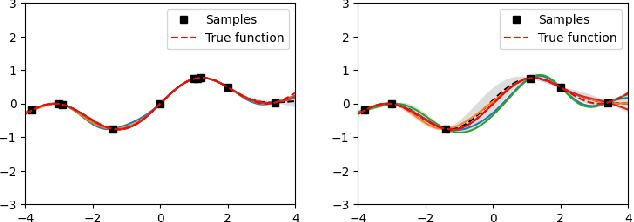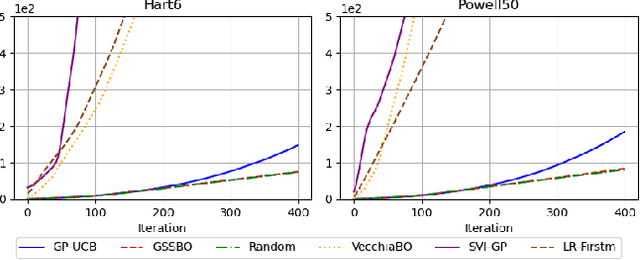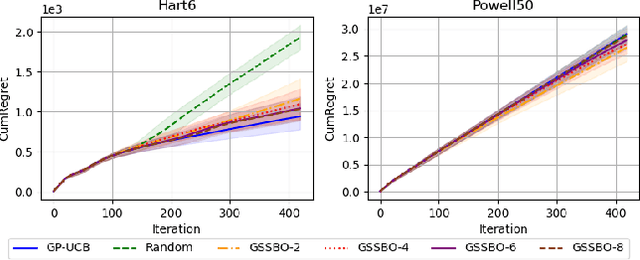Mauricio A Álvarez
Gradient-based Sample Selection for Faster Bayesian Optimization
Apr 10, 2025



Abstract:Bayesian optimization (BO) is an effective technique for black-box optimization. However, its applicability is typically limited to moderate-budget problems due to the cubic complexity in computing the Gaussian process (GP) surrogate model. In large-budget scenarios, directly employing the standard GP model faces significant challenges in computational time and resource requirements. In this paper, we propose a novel approach, gradient-based sample selection Bayesian Optimization (GSSBO), to enhance the computational efficiency of BO. The GP model is constructed on a selected set of samples instead of the whole dataset. These samples are selected by leveraging gradient information to maintain diversity and representation. We provide a theoretical analysis of the gradient-based sample selection strategy and obtain explicit sublinear regret bounds for our proposed framework. Extensive experiments on synthetic and real-world tasks demonstrate that our approach significantly reduces the computational cost of GP fitting in BO while maintaining optimization performance comparable to baseline methods.
Spatio-Angular Convolutions for Super-resolution in Diffusion MRI
Jun 01, 2023



Abstract:Diffusion MRI (dMRI) is a widely used imaging modality, but requires long scanning times to acquire high resolution datasets. By leveraging the unique geometry present within this domain, we present a novel approach to dMRI angular super-resolution that extends upon the parametric continuous convolution (PCConv) framework. We introduce several additions to the operation including a Fourier feature mapping, global coordinates, and domain specific context. Using this framework, we build a fully parametric continuous convolution network (PCCNN) and compare against existing models. We demonstrate the PCCNN performs competitively while using significantly less parameters. Moreover, we show that this formulation generalises well to clinically relevant downstream analyses such as fixel-based analysis, and neurite orientation dispersion and density imaging.
Variational bridge constructs for approximate Gaussian process regression
Jan 07, 2019

Abstract:This paper introduces a method to approximate Gaussian process regression by representing the problem as a stochastic differential equation and using variational inference to approximate solutions. The approximations are compared with full GP regression and generated paths are demonstrated to be indistinguishable from GP samples. We show that the approach extends easily to non-linear dynamics and discuss extensions to which the approach can be easily applied.
 Add to Chrome
Add to Chrome Add to Firefox
Add to Firefox Add to Edge
Add to Edge